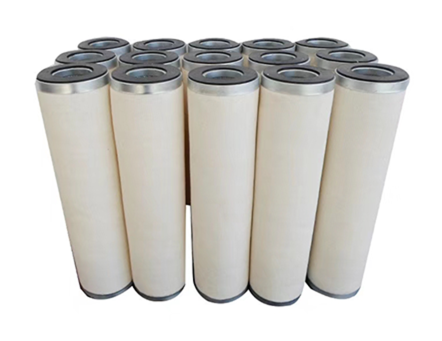 Tel:
+8615930870079
Tel:
+8615930870079
Nov . 08, 2024 10:50 Back to list
High Efficiency Sintered Metal Filter Cartridges for Superior Filtration Solutions
Understanding Sintered Metal Filter Cartridges
Sintered metal filter cartridges are an integral part of many industrial filtration systems, offering exceptional performance in filtering various liquids and gases. These cartridges are made from metal powders that have been compressed and heated (sintered) to create a porous structure. The process ensures a high level of durability, reliable filtration, and resistance to extreme conditions.
What are Sintered Metal Filter Cartridges?
Sintered metal filter cartridges are designed to remove contaminants and impurities from fluids and gases. They are manufactured using various metals, including stainless steel, bronze, and other alloys. The sintering process results in a porous material that can effectively trap particles while allowing the fluid to pass through. This unique structure provides a combination of strength, durability, and filtration efficiency that is unmatched by conventional filter media.
Key Features and Benefits
1. High Durability One of the most significant advantages of sintered metal filters is their durability. Unlike paper or cloth filters, these cartridges can withstand harsh environments, including high temperatures, pressures, and aggressive chemicals. This makes them ideal for industries such as petrochemical, pharmaceutical, and food processing.
2. Reusability and Easy Cleaning Sintered metal filter cartridges can be cleaned and reused, which is an important factor for reducing operational costs and minimizing waste. Depending on the application, routine cleaning can involve simple backwashing or mechanical cleaning, retaining the filter’s performance over an extended lifespan.
3. Consistent Filtration The porosity of sintered metal filters can be precisely controlled during manufacturing, allowing for consistent filtration performance. This ensures that the size of particles removed from the fluid or gas is uniform, which is crucial for many industrial processes.
4. Chemical Compatibility Sintered metal filters exhibit excellent chemical resistance, making them suitable for various chemical applications. They can handle corrosive substances that would degrade other filter types, ensuring reliability in critical processes.
sintered metal filter cartridge

5. Customization Options Manufacturers can tailor sintered metal filter cartridges to specific applications. They can vary the pore size, material, and shape based on the desired filtration degree and operating conditions. This customization makes sintered metal filters versatile across numerous industries.
Applications
Sintered metal filter cartridges find applications in various fields
- Oil and Gas Used for separating solid particles from crude oil and natural gas, improving the quality of the final product. - Water Treatment Employed in municipal and industrial water treatment systems for effective removal of particulate matter and contaminants.
- Food and Beverage Used to ensure product purity by filtering ingredients and beverages, complying with strict hygiene standards.
- Pharmaceuticals Essential for maintaining the integrity of products by filtering out biological contaminations, thus ensuring product safety.
- Aerospace and Automotive Utilized in fuel filtration and lubricants to prevent engine wear and improve efficiency.
Conclusion
In conclusion, sintered metal filter cartridges are a vital component in modern industrial filtration systems, providing a robust, reusable, and highly efficient solution for separating impurities from liquids and gases. Their durability and versatility make them increasingly popular across various industries, from oil and gas to food processing. As industries seek more sustainable and effective filtration methods, the demand for sintered metal filter cartridges is likely to grow, paving the way for innovations and enhancements in filtration technologies. Investing in high-quality sintered metal filters can lead to improved operational efficiency, reduced downtime, and enhanced product quality, making them a worthwhile consideration for businesses aiming to maintain competitive advantages in their respective markets.
-
Types and Applications of Air Filtration CartridgesNewsJul.28,2025
-
The Role of Gas Turbine FiltersNewsJul.28,2025
-
Mastering Air Filter Cartridge UseNewsJul.28,2025
-
Advanced Turbine Filters for Modern Gas TurbinesNewsJul.28,2025
-
Cellulose Air Filter Cartridge Advantages in Dust FiltrationNewsJul.28,2025
-
Cellulose Filters for Air Particle ReductionNewsJul.28,2025

 Email:
Email:





